💛 A Little Click Goes a Long Way
We carefully choose the ads in this newsletter to make sure they’re family-friendly and relevant. When you click on them, you’re helping keep Playful Parent free and thriving—so thank you for supporting us with just a tap or two!
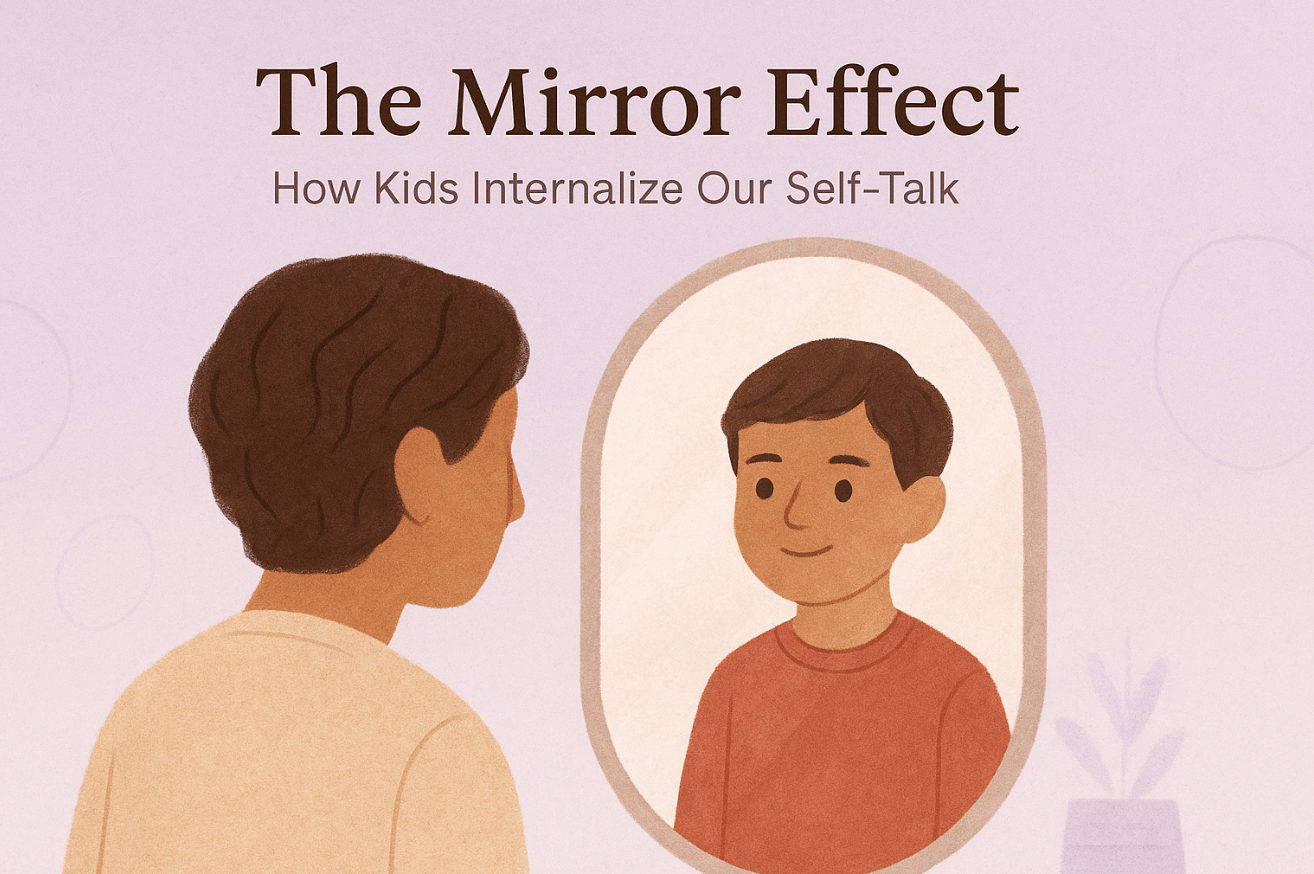
The Mirror Effect
When our children watch us, they’re not just learning how to tie their shoes or pour their juice — they’re learning how to speak to themselves.
Every sigh of frustration, every “Ugh, I can’t believe I did that,” quietly teaches them what it sounds like to make a mistake.
The way we talk to ourselves becomes the background music of their inner world.
That doesn’t mean we have to be perfect — it means we get to model what growth and self-kindness look like in real life.
When we take a deep breath and say, “That was hard, but I can try again,” our kids hear a powerful message:
It’s okay to be human. It’s okay to try again.
🌿 The Mirror Effect: How Kids Internalize Our Self-Talk
Children learn who they are by watching the people who love them most. They listen closely — not just to how we talk to them, but to how we talk to ourselves.
When a child hears, “I’m so stupid,” after we drop something or make a small mistake, they don’t just hear an adult venting — they hear what it sounds like to be imperfect. And they start storing that tone for later use, shaping the voice that will echo in their own heads.
This is called the mirror effect. It’s the quiet, powerful process where kids absorb our self-talk and reflect it back as their own inner dialogue.
💡 Why it matters:
Children’s brains are wired for imitation. Through a process called mirror neurons, they learn empathy, language, and emotional expression by watching and imitating us. When they see us handle frustration with self-compassion — saying things like, “That was tricky, but I’ll try again” — they’re not just learning resilience. They’re learning how to be gentle with themselves, too.
🌱 Small moments, big lessons:
You don’t have to get it right every time. Kids don’t need flawless adults; they need authentic ones. When we mess up and show repair — “I was frustrated, but I’m going to be kind to myself” — we’re showing them what emotional safety looks like.
Over time, this shapes a child’s confidence, emotional regulation, and sense of worth. They begin to believe:
“If my parent can be kind to themselves, I can be kind to me, too.”
The mirror effect reminds us that the words we say to ourselves matter — not because they have to be perfect, but because they teach our children how to love themselves through imperfection.
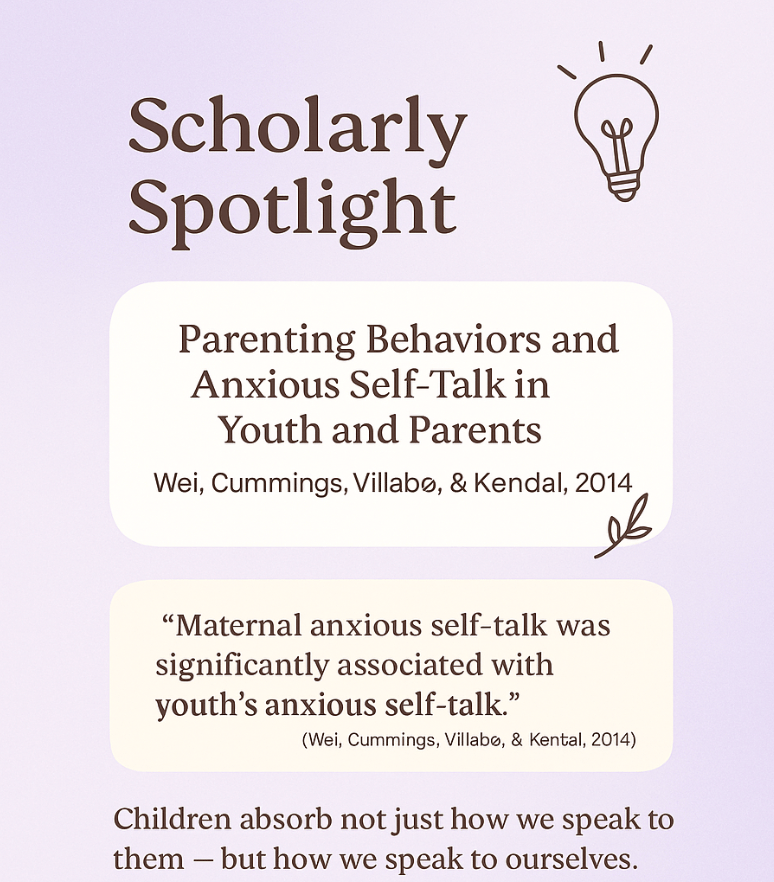
Want more fact based evidence? Check out this interesting read!
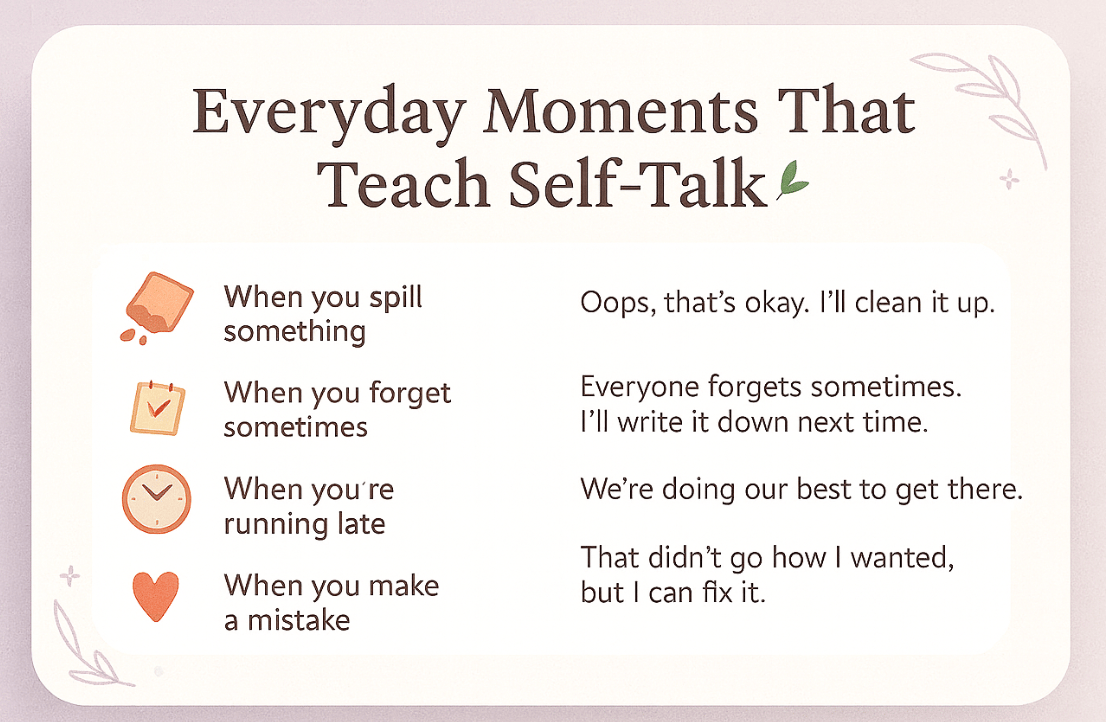
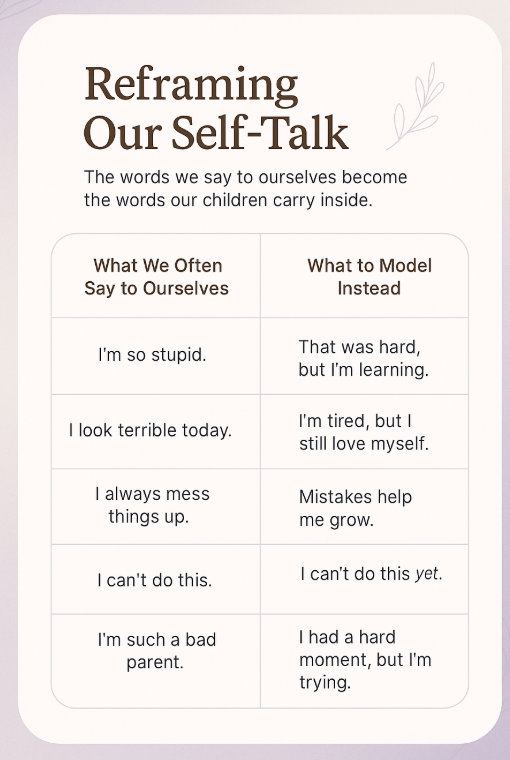
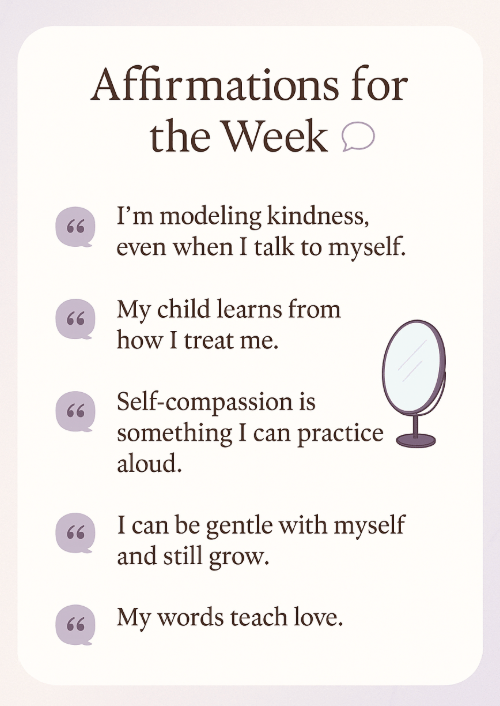
💭 Closing Reflection
Every time we soften our inner voice, our children learn what compassion sounds like.
They notice when we sigh at ourselves, when we mutter “I can’t,” and when we take a breath and try again.
They’re not just listening to the words we use — they’re learning the tone we use with ourselves.
So this week, when you spill the milk, miss the bus, or forget something important, try offering yourself the same kindness you’d want your child to learn.
Because the way we talk to ourselves doesn’t just shape our own peace — it shapes the voice our children will carry with them for a lifetime.

